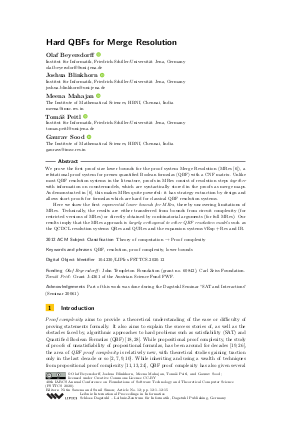LIPIcs.FSTTCS.2020.12.pdf
- Filesize: 0.55 MB
- 15 pages

 Creative Commons Attribution 3.0 Unported license
Creative Commons Attribution 3.0 Unported license































Feedback for Dagstuhl Publishing